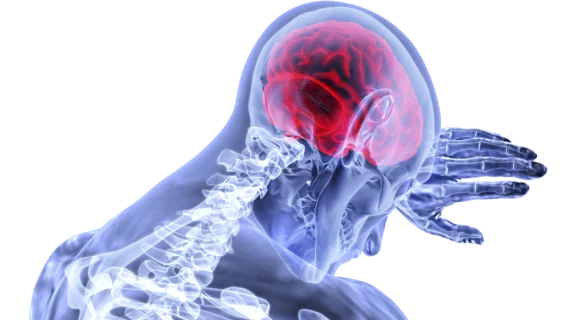Dabigatran no more effective than aspirin for recurrent stroke prevention
The popular anticoagulant dabigatran is no more effective than aspirin when it comes to preventing recurrent stroke in patients with a history of embolic events, researchers reported in the New England Journal of Medicine May 16.
Cryptogenic strokes—ischemic events for which physicians are unable to determine probable cause despite a thorough evaluation—comprise between 20% and 30% of all ischemic strokes, first author H.C. Diener and colleagues wrote in the journal. Guidelines for secondary stroke prevention in survivors are vague, typically involving some combination of aspirin, extended-release dipyridamole and clopidogrel. More recently, oral anticoagulants like dabigatran etexilate have also established a therapeutic role.
Diener et al. launched the RE-SPECT ESUS trial in an effort to compare the safety and efficacy of dabigatran with aspirin in preventing secondary events in patients who suffer cryptogenic stroke. The study, a multicenter, double-blind trial, enrolled 5,390 cryptogenic stroke survivors across 564 global sites.
According to the study, participants were randomized 1:1 to receive either dabigatran and an aspirin placebo or aspirin and a dabigatran placebo. For 19 months they took either a therapeutic dose of dabigatran—150 mg or 110 mg—twice a day or 100 mg of aspirin once a day.
After more than a year and a half of follow-up, Diener and co-authors reported 6.6% of dabigatran patients and 7.7% of aspirin patients had met the study’s primary endpoint of recurrent stroke, working out to annual stroke rates of 4.1% and 4.8%, respectively. Ischemic stroke occurred in 4% of dabigatran patients and 4.7% of aspirin patients each year, while 1.7% and 1.4%, respectively, experienced major bleeding.
The authors said clinically relevant but non-major bleeding also occurred, in 1.6% of dabigatran patients and 0.9% of aspirin patients each year.
“Our hypothesis was that dabigatran would be more effective than aspirin for stroke prevention in patients with embolic stroke of undetermined source because many of these patients might have had an unrecognized source of cardiac embolism, including atrial fibrillation,” the team wrote. “Post-hoc analysis suggested that dabigatran may have had an effect on stroke recurrence after one year, but no inferences can be made because of the post-hoc nature of the analysis.”
The researchers said they couldn’t conduct a systematic assessment of AFib prevalence in their patients because just 14% of the pool underwent extended ECG monitoring after randomization. An ongoing trial of patients with cryptogenic stroke and atrial cardiopathy, the ARCADIA trial, is looking to answer that question now.
Diener et al. said the size and diversity of their study population, who hail from 42 countries in Europe, Asia, North America and Latin America, helps make the RE-SPECT ESUS team’s results generalizable to other patients.
“We found that dabigatran was not superior to aspirin in preventing recurrent stroke in patients who had had an embolic stroke of undetermined source,” the authors wrote. “The incidence of major bleeding was not greater in the dabigatran group than in the aspirin group, but there were more clinically relevant non-major bleeding events in the dabigatran group.”

